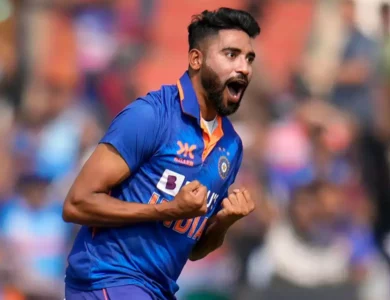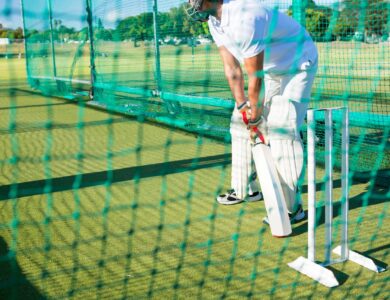Mental Fatigue: Ishan Kishan Took a Break Because of This Reason

Mental fatigue is a condition that can affect individuals in various aspects of life, including professional sports. It is a state of mental exhaustion that arises from prolonged periods of stress, pressure, and intense mental activity. In the case of Ishan Kishan, the talented Indian wicketkeeper-batter, mental fatigue has been cited as the primary reason for his decision to take a break from cricket.
According to reports, Ishan Kishan approached the Indian team management last week, expressing his need for a break from the game. This request was made after a year of non-stop traveling and a lack of sufficient game time. The selectors were also involved in the discussion before granting him the break.
Mental fatigue can manifest in various ways, affecting an individual’s cognitive abilities, emotional well-being, and overall performance. In the context of professional sports, it can significantly impact an athlete’s focus, decision-making skills, and physical performance.
For Ishan Kishan, the constant travel associated with being a part of the Indian cricket team can be mentally and physically draining. The demands of international cricket, including long tours, different time zones, and the pressure to perform consistently, can take a toll on a player’s mental health.
Mental fatigue can lead to a decline in cognitive function, making it difficult for athletes to concentrate and make quick decisions on the field. This can impact their performance and overall effectiveness as a player. Additionally, mental fatigue can also affect an individual’s emotional well-being, leading to mood swings, irritability, and a general sense of exhaustion.
Recognizing the signs of mental fatigue is crucial in order to address the issue effectively. Some common symptoms include decreased motivation, difficulty in focusing, increased irritability, and a decline in performance. It is important for athletes and their support systems to be aware of these signs and take appropriate measures to prevent or manage mental fatigue.
In the case of Ishan Kishan, his decision to take a break from cricket demonstrates a proactive approach towards managing mental fatigue. By recognizing his need for rest and communicating it to the team management and selectors, he is prioritizing his mental well-being and ensuring that he can return to the game refreshed and rejuvenated.
Managing mental fatigue requires a holistic approach that focuses on both physical and mental well-being. This can include strategies such as regular exercise, adequate rest and recovery, mindfulness practices, and seeking professional support when necessary. It is important for athletes to have a support system in place that understands the demands of their profession and can provide the necessary guidance and assistance.
Mental fatigue is a real and significant concern in the world of professional sports. It is essential for athletes, coaches, and team management to prioritize mental health and well-being alongside physical training and performance. By recognizing the signs of mental fatigue and taking proactive steps to address it, athletes can maintain their overall well-being and enhance their performance in the long run.
Ishan Kishan’s decision to take a break from cricket due to mental fatigue serves as a reminder of the importance of mental health in sports. It highlights the need for athletes to listen to their bodies and minds, and to take the necessary steps to maintain their well-being in a demanding and high-pressure environment.








